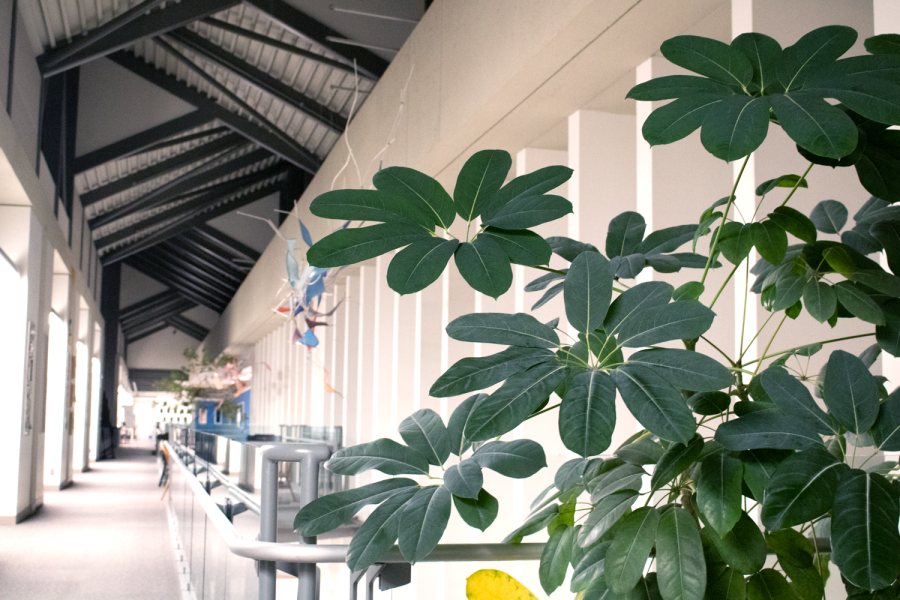
MULCH, a student org committed to urban land and community health recently acquired five hens. This led The Mac Weekly to investigate more about an org that has live animals under its care. We talked to Mollie Siebert ’14 and Jeff Kaplan ’14, current leaders of the org, and Tessa Ganser ’16, one of next year’s leaders.
Could you give me some basic info on MULCH?
MS: MULCH stands for Macalester Urban Land and Community Health. What started off as a cute name now reflects a lot on the kind of work we do on campus. As a small, urban liberal arts school, we’re in a small demographic of schools thinking critically about our role in our food system but lacking land to try our hands at growing food ourselves. Our urban setting attracts both a unique set of obstacles and advantages for growing food — on one hand we don’t have a lot of land, but on the other we have this intense network of community members with a ton of energy and a huge infrastructure of support from students, professors, staff and residents of the Twin Cities. It seems there’s an endless amount of innovative people who want to garden in any available piece of land they can find around here! It’s so inspiring. Even though our garden is less than, like, 0.1 of an acre we really make the most of it by using permaculture techniques, intercropping, raised beds, trellises, and, of course, learning from our trials and misadventures.
We grow a lot of tomatoes, and one of our summer gardeners scored all of these great heirloom varieties from a local farmer with a surplus. We’ve been eating a lot of tomatoes lately. No one’s complaining. We also have a ton of pumpkins, which are decorating my house right now, but will soon be turned into baked goods and used for experimentation in our canning workshops. Our herb spiral is probably my favorite part of the garden. Either that or the volunteer ground cherries all over the place. Okay, I have a lot of favorite things about the MULCH garden.
What led to the decision of hen acquisition?
JK: The purpose of keeping chickens on campus is to provide an ongoing hands-on educational project for students, faculty, staff and community members. Through this project, participants and visitors will learn about how to care for chickens as part of a more sustainable urban landscape and foodscape. The planning process for this project began in Fall 2010 and continued throughout following the winter and spring. In March 2011, students began working with a group of Amish furniture makers from Harmony, MN to design the coop. The coop was constructed in early April behind the Spanish house, next to the MULCH Garden.
Where are the hens, when did you get them, how old are they?
TG: The hens live between the Spanish and German house in a wooden coop near the MULCH Garden. We just got this little flock about a month ago from a farm in Lakeville, MN. They are about three months old at this time.
Who takes care of them and how often?
TG: The chickens are cared for by MULCH Chicken Captains: Jeff Kaplan, myself, and our awesome crew of volunteer chicken caretakers. If you’re interested in taking care of the hens, email me and I can add you to the list for next semester’s care schedule. We check in on the ladies every morning to open up the coop and each night to tuck them in for bed. Often times, they get some extra care by students and caretakers passing by as well.
Can anyone see them?
TG: Yes! With the cold weather lately, the ladies have been staying inside the coop, but you can peak in the windows and see them! Otherwise, they are often seen pecking and scratching in the chicken run outside.
How will they be taken care of over the summer?
TG: Over the summer, we will have another team of chicken caretakers doing morning and nightly chores as well as general chicken and coop care. (If interested, email me! We’d love to have new volunteers!)
Do they have names?
TG: At this time, since the hens are so new, they have not received names. We welcome any naming suggestions and they will be named by the end of the year, for sure.
Will we get their eggs in Cafe Mac?
TG: Generally the five hens do not produce enough eggs to get into Cafe Mac, so chicken care volunteers are welcome to take eggs home and enjoy them.
Why no roosters?
TG: Roosters can be noisy in the mornings (and throughout the day), so we won’t be having any in our little coop. Just the ladies laying eggs here!
Have you run into any problems since taking them in?
TG: We are always working towards making the coop more comfortable and safe for the hens (from raccoons, cold weather, etc.) so that has been a continual process. We did end up accidentally receiving a rooster in this new flock, but he was soon returned to the farm he came from and now it is only the five hens in the coop.
Any last comments/stories?
TG: We have five different breeds in our coop at this time. They have not started laying eggs yet (by midsummer they should be in egg-laying mode) and it has been really fun to see their personalities develop in the short time since they have become part of the Mac Community.










Sue Ball • Sep 8, 2019 at 3:35 am
I appreciate, cause I found just what I was looking for. You have ended my four day long hunt! God Bless you man. Have a great day. Bye